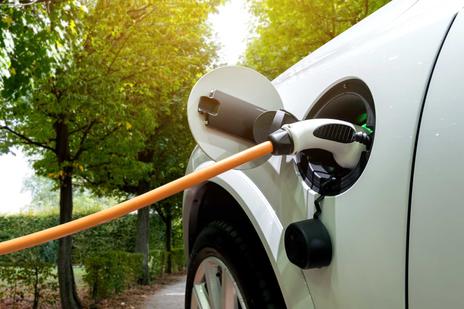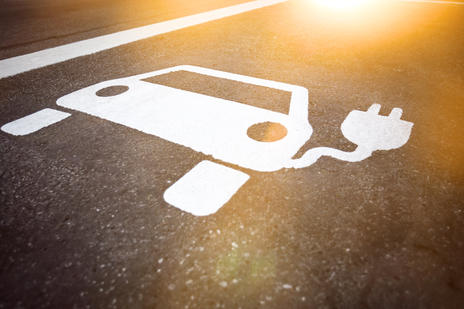
Creating opportunities for collaboration
More governments are setting goals to accelerate their ZEV transition. With this comes new challenges and opportunities to drive action and decarbonise transport systems across the world.
Over the last three years, the ZEV Community has been building momentum on low carbon mobility and increasing its global reach, ambition and impact to support governments at all levels on their net zero journey.
And it has largely done this by creating valuable opportunities for collaboration.

Shared learning for joint action
In the past year, the ZEV Community has united 16 governments from national, state, regional and city levels across Europe, North America and Latin America through a selection of Peer Learning Forums. Together they have shared knowledge, best practice and learnings to address shared challenges.
The forums have taken a peer consulting approach. This is a method that encourages mutual engagement for problem solving. Participating governments were asked to openly share their ZEV transition strategies to learn from one another. And therefore, benefited from the opportunity to reflect, gain fresh perspectives and develop new ideas.
"The forums were a great chance to meet counterparts across the world working on similar policy questions, with the benefit of hearing from jurisdictions at different stages of the transition to ZEVs. Our conversations were useful in assessing my government’s approach, adding new trends and interesting questions to our radar".
"The forums were a great chance to meet counterparts across the world working on similar policy questions, with the benefit of hearing from jurisdictions at different stages of the transition to ZEVs. Our conversations were useful in assessing my government’s approach, adding new trends and interesting questions to our radar".

Multiple challenges, common goals
Despite working across different regions, countries and contexts, governments found that they faced similar challenges, covering the themes of equity, just transition, EV accessibility and heavy-duty vehicles.
To address these challenges, governments have proposed a list of goals and actions:
- Ensure a just and equitable transition with accessible ZEVs for all communities
- Support the electrification of heavy-duty vehicles which requires high energy grid demand and scale-up charging infrastructure networks
- Develop new innovative, viable financing and business models to drive the transition to ZEVs and reduce the financial burden for governments
- Leverage the potential of cooperation between different stakeholders in the transport system to the sustainability of the whole ZEV supply chain
- Establish clear pathways and actions plans to meet 2030 targets
- Build resilience, reskilling, upskilling jobs and developing the required skills for a low carbon transport system
"Globally, we face many similar challenges in the transition to zero-emission vehicles, whether it's around equity and accessibility, infrastructure deployment, utility engagement, consumer education, and more. The ZEV forums brought together fresh ideas and knowledge sharing through peer consulting that inspired local action".
"Globally, we face many similar challenges in the transition to zero-emission vehicles, whether it's around equity and accessibility, infrastructure deployment, utility engagement, consumer education, and more. The ZEV forums brought together fresh ideas and knowledge sharing through peer consulting that inspired local action".

Uniting with business
The forums have helped to build and strengthen many cross jurisdictional partnerships. Now it’s time to take this a step further and create a space for governments and businesses to collaborate on ZEV challenges. Together they have the potential to maximise impact and drive the ZEV transition further, faster.
Every actor in the transport system has a role to play in the transition. The ZEV Community are collaborating with Climate Group’s EV100 initiative to create new spaces for innovation and partnerships ahead of, and beyond COP27.
"Recently, the City of Orlando passed a resolution to adopt, Orlando’s 2030 Electric Mobility Roadmap with a vision to 'create mobility opportunities that embrace emerging technologies, reduce emissions that harm public health, bolster climate change resilience, and increase access and affordability for our disadvantaged communities'. The input and feedback from ZEV Community inspired our City to lead a local collaborative and successfully mobilize our transportation partners towards an electric mobility future".
"Recently, the City of Orlando passed a resolution to adopt, Orlando’s 2030 Electric Mobility Roadmap with a vision to 'create mobility opportunities that embrace emerging technologies, reduce emissions that harm public health, bolster climate change resilience, and increase access and affordability for our disadvantaged communities'. The input and feedback from ZEV Community inspired our City to lead a local collaborative and successfully mobilize our transportation partners towards an electric mobility future".

About the ZEV Community
The ZEV Community is a peer learning project co-hosted by the Under2 Coalition and the ZEV Alliance, in partnership with C40 Cities and the U.S. Climate Alliance. It is supported by the Scottish Government and the ClimateWorks Foundation.
The project aims to support all levels of government to advance their ZEV agendas through collaboration and the exchange of best practice, innovative policies and success stories.


